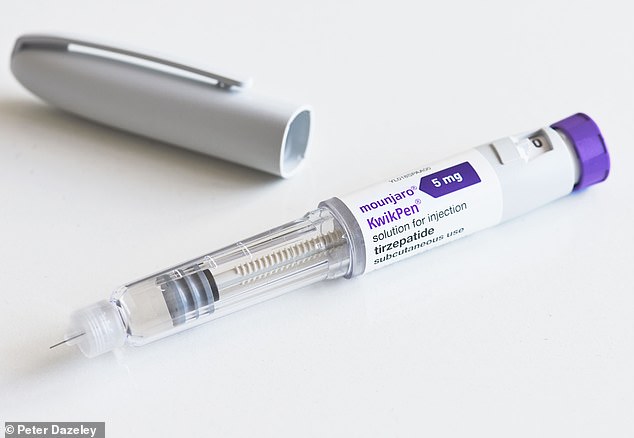Fat jabs have been linked to the deaths of five people in Scotland, including one reported to watchdogs this year.
The prescription-only drugs, originally developed to suppress appetite among obese patients with type 2 diabetes, have become popular as a quick fix for people looking to lose weight.
However, health watchdogs have received hundreds of reports from people who have become ill after taking them.
In March, the Medicines and Healthcare Regulatory Agency (MHRA) disclosed it had been notified 361 times since January last year of patients in Scotland who have suffered illness after taking the drugs.
MailOnline recently reported that 12 Scots were taken to A&E between April 2023 and August 2024 with complications from weight loss injections in the same health board area where Britain’s first fat jab victim died.
Now, the watchdog has revealed details of the most serious cases linked to the drugs in Scotland, stating it has received five reports of fatalities.
Three reports concerned patients using the medications for weight loss alone while a fourth patient had prescriptions to treat diabetes.
Details of the fifth reported fatality were not provided.

Scottish nurse Susan McGowan was the first person in the UK whose death was directly linked to a weight-loss injection

Ms McGowan, 58, died with her niece Jade Campbell by her side after taking the medication
Nurse Susan McGowan became the first person in the UK whose death was directly linked to a weight-loss jab.
She died at Monklands Hospital in Airdrie last September.
The 58-year-old suffered organ failure, septic shock and pancreatitis after taking two jabs of ‘prescribed tirzepatide’, sold under the brand name Mounjaro.
Dr Samantha Robson, a GP working in weight management, said it is important not to draw conclusions on the deaths without clear clinical context.
She said the drugs can be ‘transformational medications when used correctly, for the right patients, with the right support’, but added that there are instances of people taking them improperly.
She said: ‘Many patients are accessing these medications privately—through clinics, prescribers, and worryingly, through unregulated online pharmacies and social media.’
Dr Robson is the medical director of Temple Clinic in Aberdeen, which prescribes GLP-1 medications ‘under strict medical supervision and with intensive support’.
However, she said it is alarmingly easy for people to obtain them without proper assessment, supervision or education.

The prescription-only drugs are seen as a quick fix for people looking to lose weight

Experts have expressed concern over access to the drugs
‘I am aware of cases where patients with a history of eating disorders, including anorexia nervosa, are lying about their weight and health to access these drugs purely to suppress appetite and further restrict their intake. This is deeply dangerous.
‘There are also growing reports of counterfeit medications being sold online—products that may be contaminated, contain no active ingredient, or in some cases may be resold used pens from patients who stopped the medication but are hoping to recoup some cost.’
She added: ‘These medications are not inherently dangerous — but unsupervised, unregulated use absolutely is. And if we continue to allow them to be used like crash diets in injectable form, the current headlines will be the tip of the iceberg. This is not just a public health issue — it’s an ethical one.’
MailOnline has previously revealed that black market seizures in Scotland of potentially dangerous weight loss drugs have soared.
The MHRA is investigating whether a genetic trait puts some patients at greater risk of side effects.
Dr Alison Cave, its chief safety officer, said: ‘Patient safety is our top priority and no medicine would be approved unless it met our expected standards of safety, quality and effectiveness.
‘On the basis of the current evidence, the benefits of GLP-1 medicines outweigh the potential risks when used for the licensed indications. The decision to start, continue or stop treatments should be made jointly by patients and their doctor, based on full consideration of the benefits and risks.’











